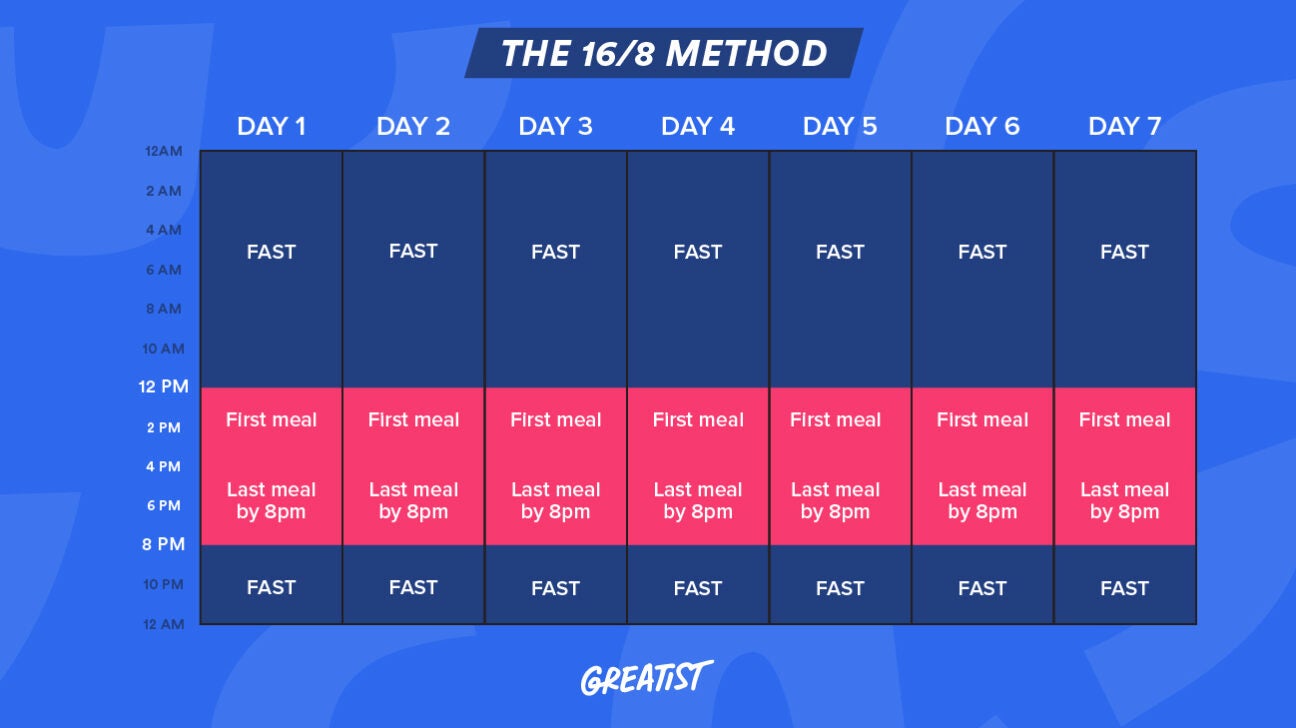Intermittent fasting is a type of dietary pattern that involves alternating between periods of fasting and eating. There are many potential benefits associated with intermittent fasting, including weight loss, improved cholesterol levels, blood sugar control, reduced inflammation, and promotion of longevity. However, it is not right for everyone, and those with a history of eating disorders or other health conditions should speak to a doctor before starting any type of fasting regimen.
Intermittent fasting is an effective way to lose weight and improve your overall health. Here are 10 facts about intermittent fasting that will help you understand this popular dieting method:
1. Intermittent fasting supports weight loss by reducing insulin levels and promoting the release of fat stores for energy.
2. Intermittent fasting puts our cells under mild stress, which is thought to improve their function and promote longevity.
3. Intermittent fasting may improve cholesterol levels, blood sugar control, weight and/ or fat loss, lower inflammation, promote longevity, and reduce the risk of cardiovascular issues.
4. Intermittent fasting involves switching between fasting and eating on a regular schedule. This type of fasting could help you manage your weight or even some health conditions.
5. While intermittent fasting has been shown to result in weight loss and improvements in certain health markers, research to date doesn’t show that it

What is intermittent fasting?
Intermittent fasting is an eating pattern that cycles between periods of fasting and eating. It is also known as time-restricted feeding. Intermittent fasting may offer many of the same benefits as a calorie-restrictive diet, including weight loss, improved insulin sensitivity, and reduced inflammation.1. Intermittent fasting is not a diet. Intermittent fasting does not tell you what foods to eat, but rather when to eat them. You can eat whatever you want during the eating window. 2. Intermittent fasting can help you lose weight. Intermittent fasting works for weight loss by reducing your overall calorie intake. When you fast, your body is forced to use stored glucose (sugar) for energy, which means it will burn through calories stored as fat more quickly. 3. Intermittent fasting can improve insulin sensitivity. One of the main benefits

The benefits of intermittent fasting
Intermittent fasting has become a popular way to lose weight and improve overall health. Here are 10 facts about intermittent fasting that will help you decide if it’s right for you.
1. Intermittent fasting is not a diet, but rather a pattern of eating.
2. Intermittent fasting can help you lose weight by reducing your overall calorie intake.
3. Intermittent fasting can help improve your cholesterol levels and blood sugar control.
4. Intermittent fasting can lower inflammation levels in the body.
5. Intermittent fasting may promote longevity by protecting cells and tissues from damage.
6. Intermittent fasting can help increase your level of human growth hormone (HGH).
7. Intermittent fasting can improve your mental clarity and focus.
8. Intermittent fasting is safe for most people, but there are

How to do intermittent fasting
2. Intermittent fasting can help you lose weight and visceral fat.
Intermittent fasting involves switching between fasting and eating on a regular schedule. This type of fasting could manage your weight or even some obesity-related diseases.
Intermittent fasting may improve cholesterol levels, blood sugar control, weight and/ or fat loss, lower inflammation, promote longevity, and more. The fasting reduces insulin levels which in turn will release fat stores for energy. Fasting puts our cells under mild stress. It is thought that this “mild stress” may actually be beneficial to our health by stimulating repair mechanisms and improving resilience.

When to eat while intermittent fasting
Intermittent fasting is becoming increasingly popular as a weight loss strategy. But what is it? And how does it work? Here are 10 things you need to know about intermittent fasting:
1. Intermittent fasting involves cycles of fasting and eating.
2. The most common intermittent fasting schedule is 16/8, which means you fast for 16 hours and eat during an 8-hour window.
3. You can also do a 20/4 intermittent fast, which means you eat only during a 4-hour window each day.
4. Intermittent fasting can help you lose weight by reducing your overall calorie intake.
5. It can also help boost your metabolism and promote fat burning.
6. Intermittent fasting has been shown to improve cholesterol levels, blood sugar control, and weight loss in some studies.
7. However, more research is needed to

Tips for intermittent fasting success
Intermittent fasting has many potential benefits and is a great way to lose weight. Here are 10 tips to make intermittent fasting easier and more successful:
1. Choose the right type of intermittent fasting for your goals. If you’re trying to lose weight, consider a plan that involves fasting for 12-16 hours between dinner and breakfast the next day.
2. Make sure you’re eating enough. It’s important to eat nutrient-dense foods during your eating periods, in order to keep blood sugar levels stable and avoid feeling overly hungry or fatigued.
3. Drink plenty of water. Staying hydrated is crucial when fasting, as it can help to curb hunger cravings and improve energy levels.
4. Avoid processed foods and refined sugars. These can cause blood sugar spikes and crashes, which can make it more difficult to stick to your fasting plan.
5. Get adequate sleep. Sleep

![16_8-IF[1]](https://www.viralstories360.com/wp-content/uploads/2022/11/16_8-IF1-696x696.jpg)
